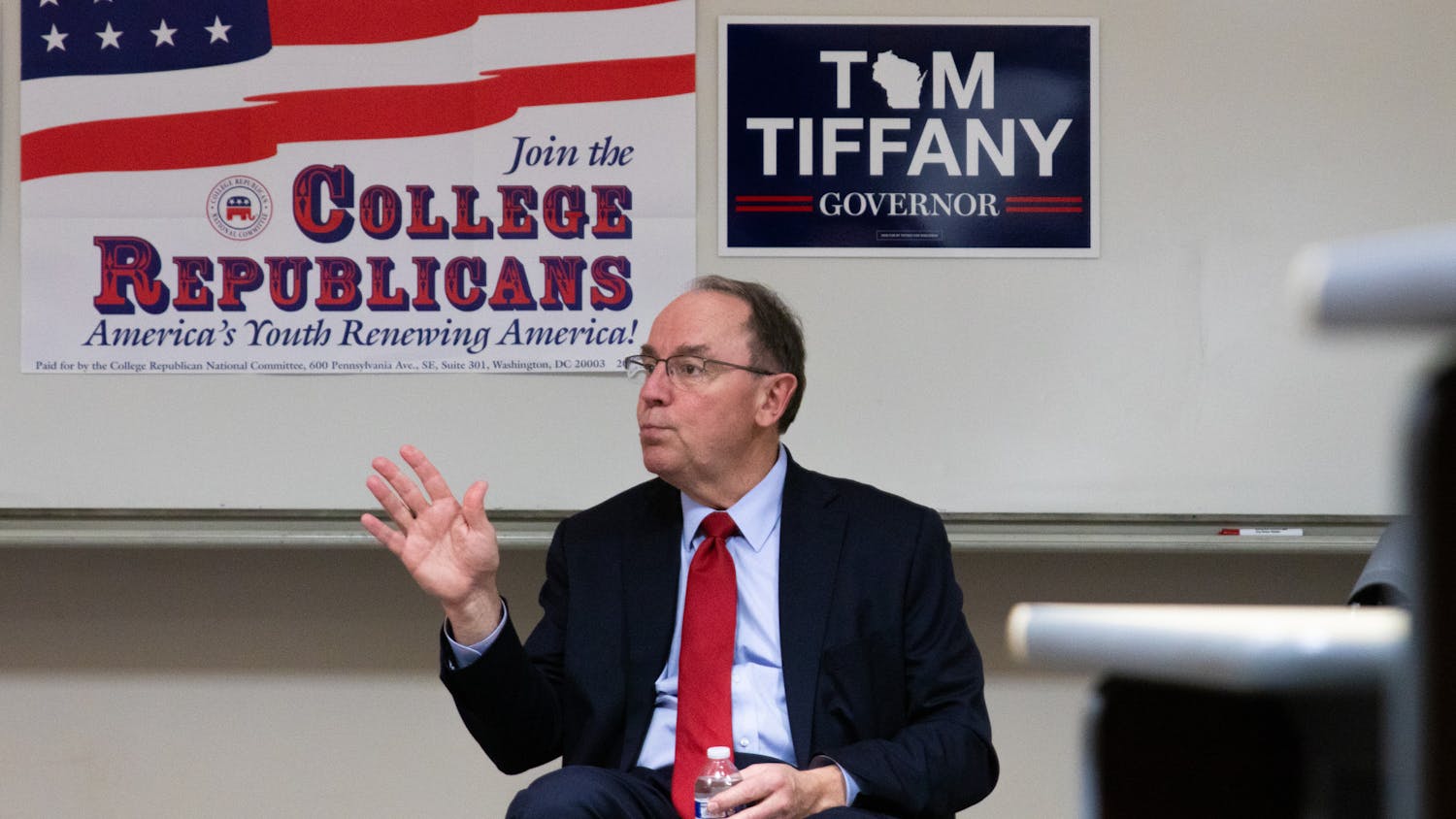Maintaining a profitable agricultural outfit in America has become increasingly difficult due to changes in the fundamental nature of agriculture. The farming methods that worked well even 50 years ago, may no longer guarantee prosperity today. However, UW-Madison's Farm and Industry Short Course program teaches future agriculturalists how to succeed and survive in their industry.
'The Farm and Industry Short Course is very broad; it isn't limited to dairy,' said Tom Blattner, administrative director of Babcock Dairy, who also teaches the dairy products processing and quality class. This is reflected in the program's mission statement, 'to provide the best research-based, short-term education in agriculture for individuals planning careers in production agriculture or related agri-businesses.'
Offered through the College of Agriculture and Life Science, the Short Course program is broken up into three terms per year with an average enrollment of 100 to 120 students per year. Starting in November and ending in March, each Short Course term begins after the fall harvest and ends before planting in the spring, allowing students who live on farms to avoid conflict by working when they are needed the most.
During each term, students have the opportunity to live on campus in Jorns or Humphrey dormitories, both located in the Lakeshore area. According to the CALS website, students can choose from 40 courses in a wide variety of fields, such as poultry, human relations or agricultural engineering.
One important lesson taught in the program is 'that the only way you can survive is to go bigger,' said Joel Hammerly, a Short Course student pursuing a certificate in Dairy Farm Management. According to the Wisconsin Dairy Business Association website, the number of dairy farms in Wisconsin steadily decreased from 150,000 in 1950 to less than 16,000 in 2004. There are fewer than half as many dairy farms in Wisconsin today than were operating in 1990.
'There is a shortage of trained dairy farmers in the state, so the Short Course is very important in helping to improve that situation,' said Rick Daluge, director of UW-Madison's Short Course program.
Although the number of dairy farms has gone down, the actual size of the farms has increased.
'Farms are getting bigger; there's a lot of consolidation going on,' Blattner said.
The increase in size has also altered the stereotypical view that a farm requires constant care, with farmers working from before dawn to after dusk.
'Because of the typical low price of milk, a family cannot live on the net income'that was realized from the average herd size'of 1980. Farms [have been] combined to make a viable unit,' said David Wieckert, a UW-Madison dairy science professor.
According to Wieckert, having larger herds allows farmers to justify a modern milking facility, thus avoiding the problems faced by older farmers, which were often very hard on the knees and back.
'Larger farms mean that it is possible to enjoy activities that others expect [like vacations and time off from milking cows]' Wieckert said.
In order to encourage efficient and profitable endeavors, Short Course students learn about the business aspects of agriculture, such as the advantages of forming limited liability corporations, as well as communication techniques, like the drafting of press releases.
'Students receive either a one-year or two-year certificate for attending the Short Course,' Daluge said.
This certificate is either general or focused on a particular specialty. There are six specialty areas, which include: 'Dairy Herd Management,' 'Crops and Soils,' 'Farm Mechanics,' 'Grass Based Dairying,' 'Farm Service and Supply' and finally 'Meat Animal & Poultry.'
'The requirements are 20 credits for one year and 40 for two year, [and] they have graduation exercises in March,' Daluge said.
While students learn about the agricultural industry, there are also other benefits to the Short Course program.
'We're all really close,' explained Hammerly, who resides in Humphrey. 'Most of us go home for the weekend; school is like a vacation, a way to broaden our outlook on life. Most of us don't live in a big city like this.'





